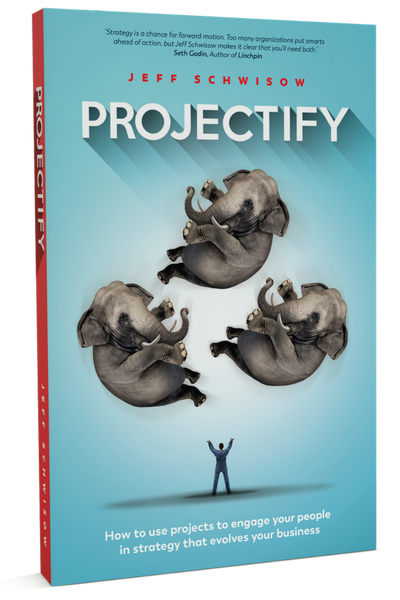The 3 myths you must overcome to unlock the greatness in your organisation
I believe that exceptional business performance – be it customer service, product development or growth and profitability – comes from operational excellence. It comes from a team that is constantly striving to be great at the job of delivering value to your customers. It comes from not accepting ‘good enough’ but from constantly searching for ‘better’ – constantly searching for greatness. Looking to create a culture of operational excellence is that search for greatness.

Myths, legends and business unicorns – what are you building your business on?
I have written previously about the importance of greatness in building a thriving organisation. It comes from leadership that gives everyone in your organisation the chance to be their very best and be part of a greater whole. Exceptional business cultures have greatness as a quality that is actively encouraged and enabled.
But if we are going to unlock our greatness, there are three myths that we need to overcome…
Myth 1 – We can measure our way to success.
It is a long-held business belief that we can measure our way to success. We believe that we can affect the result by focusing on the scoreboard; how and what it measures.
In reality, the only way to affect the scoreboard is by changing the way we play on the field.
‘What gets measured gets done’ is an oft-quoted dictum that has been attributed to every business guru of the last half-century. Drucker, Deming, Peters and others have all been credited with this fundamental truth of modern business management. However, what we often forget is that if you measure the wrong things then you do the wrong things.
When people are judged primarily on their results, we create an environment where people manipulate the results to avoid judgement. All this results in is a lost opportunity to gather information that could drive improvement.
Measurement is an extremely important source of management information and an absolute necessity in corporate reporting. But its most valuable application is in producing information that tells the business where it needs to improve and how. The most astute businesses measure those things that will allow them to continuously get better – to strive for operational greatness.
A business does need to know if it’s winning or losing – what’s happening on the scoreboard. The fundamental problem lies in the flawed belief that controls and control are the same thing.
When we put stringent controls around knowledge work we send a clear message that we value compliance over performance.
Myth 2 – We can control our way to high performance
Since the introduction of Taylor’s scientific management approach, there has been a belief that we can control our way to high performance. That if we put in place ever-more stringent procedures, processes and work requirements, we can wrestle the work environment into compliance and ultimately into performance.
The reality is that we are now in the midst of a knowledge economy where most of the repetitious activities have been – or will be – automated. Even in most manufacturing environments and so-called ‘blue collar industries’, we need our people to apply their skills, experience and THINKING to the work that they do to drive high performance.
When we put stringent controls around knowledge work we are telling people that following procedures – completing checklists – is the result we’re looking to drive. We send a clear message that we value compliance over performance.
On one project I worked on in central Queensland, each member of the workforce was meant to complete three ‘take five forms’ (a five-minute safety checklist) per day. With 140 workers on site that equated to 420 forms each and every day. There was no way that anyone is going to do anything with 420 forms except count them to see if each worker had fulfilled their quota. Not surprisingly, the workers were not hitting their target and were routinely chastised for coming up short. One morning I watched as, after one such rollicking, a superintendent pulled his supervisors aside and told them to start getting their crews to fill out their three forms at the end of their lunch break so they could get their numbers up. “I’m tired of being told we’re not performing” is what he told his supervisors. What sort performance was that ‘control’ driving? What end was that process serving?
Process is important – it gives us a framework in which to operate. Standard procedures create consistency and are a baseline for continuous improvement. Checklists are valuable prompts for ensuring we take all the right steps in the right order without having to memorise them. But they are a means to an end not the end in and of themselves.
Myth 3 – The sum of the operational parts equals a high performance whole
I believe this myth has the most profound impact on our ability to lift performance to a new level. This myth thrives on disassociation – the belief that business performance is somehow outside and separate to doing the work. A high-performance working environment IS how we do the work. If we want to create an exceptional performance environment then performance needs to be embedded in exceptional work practices and into our operational thinking.
This is true of safety, product quality, design and development, customer service and even efficiency. We often believe that if we successfully manage each of these things individually we’ll deliver an outstanding overall result. That the sum of the parts will deliver an exceptional whole. It rarely does. It leads down a path where we view these individual components as trade-offs between each other. If you want high quality or you want greater levels of safety, then we need to spend more money or take more time. Traditional management practice is built on this belief that performance is a constant balancing act between the competing priorities of time, cost and quality.
In fact, what I have seen over and over again is that the exact opposite is true. Great teams don’t struggle to be safe. They also don’t struggle to be efficient and effective. They don’t struggle to deliver value to their clients. It’s because they don’t leave anything to chance… they look to be great at everything they do and not just a few things at any given time.
Much of my client work is on troubled projects and business units. I consistently see that the better we can get these projects and businesses working together as a team, the more efficiently and effectively they work. But they also get more reliable at meeting expectations, produce a higher quality product or service and create a safer working environment. The same teams with the same people in the same contracting or business environment. They get better at everything they do when they start focusing on being good at the work they’re doing.
Greatness comes from evolving our performance management thinking
For most businesses, performance management has moved away from a reliance on individual skills and experience where personal responsibility was the focus – this total reliance on the ‘craftmanship’ of our people is too variable in today’s complex business environment.
For many, this move has been to Performance Management 1.0 – where the focus in on process. This evolution leverages systems as a means of getting more consistent and effective work practices. However, their value is heavily influenced by compliance and relies on surveillance and personal responsibility to be effective.
It has become clear in many industries that this process-based approach isn’t enough to achieve the level of performance that’s necessary to keep up with the rapidly changing environment. People need to be the next point of focus as it is people that craft these management systems, it’s people that implement the systems and it’s people that execute the work that drives business results. So Performance Management 2.0 looks to leverage people’s beliefs and behaviours so that work isn’t seen as a series of procedural requirements but as part of shaping a performance culture.
The relentless pace of change demands that we make the next step change in our business results – Performance Management 3.0. Here the focus is on every aspect of our performance as well as maintaining that performance under highly dynamic circumstances. Unfortunately, much of the leverage that we’re currently using to drive that performance focus is based on the three myths discussed above – more measurement, more control and greater disassociation in the way we do work.
But if we really want to create exceptional business outcomes in all market and economic conditions we need to leverage operational excellence. It’s time to stop focusing on results and start focusing on being great at doing work. We need to step into our greatness.
Questions for consideration
Here are some questions to ask yourself and your team if you want to explore the greatness in your organisation.
- Where are these myths at play in your organisation?
- How are you asking your team to be the greatest version of themselves?
- Where are you at in the Performance Management evolution and where do you want to be?
Never miss an article – sign up for my fortnightly Projectifying Business newsletter here




Leave a Reply
Want to join the discussion?Feel free to contribute!